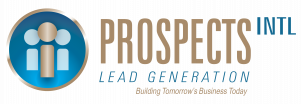
Selling to the Unseen-Blog/Quiz #12
What is sales psychology? Sales psychology can be defined as a process that studies the psyche of your target market. Can you see the person’s psyche you are selling to in a physical, one-on-one setting? No.
Can you see the wind, electricity, or molecules without the proper microscope? What about love? Can you see love? The answer to all of these questions is obviously “no.” What can we see? We can see what these things can do, the effects they have on their surroundings or people they come in contact with. The same is true of a buyer’s psyche… you can’t see it but it does exist; trust me, it is there. The wind obviously does exist as do the other aforementioned items and many more but only the effects of their existence give evidence of their existence and such are the thoughts and feelings of a luxury market buyer. Their desires and objections, passions and concerns are expressed on an “as needed” basis by most of them so as to not tip off the dreaded sales person. So how do we sell to that which cannot be seen?
The answer is questions. They are the tool that can make your prospective buyer give you the combination to what is inside of them, that which is unseen. The key to the unseen inside of the prospect can be monitored by body language if you are in a “live” or “virtual” situation and the answers they give to your questions. Body language has been controversial and defined as unreliable by some authors and psychologists, but I beg to differ.The preponderance of the decades of evidence experienced in our industry says that whether feigned (to create protection from the sales person) or authentic, it does exist. Even if horse-trading on the border, at an auction or the sale barn, body language is a real human trait, sometimes transparent, sometimes a smoke screen. Most of the writers and social experts that poo-poo its existence and its worth have never sold and couldn’t close an umbrella, so let’s take their opinions and categorize them as being from lay persons who have never walked a mile in our shoes.
Let’s examine the demeanor of some different prospect types; oft times a person will set the stage of an encounter, whether ”live” or via phone, text or email, with the age-old buffer, ”I’m/We’re just looking.” This statement is meant to allow the prospect to feel like they are setting the expectations of the sales professional properly and creating a barrier between themselves and the salesperson, while also protecting their wallet from coming into play on that particular day during that particular encounter. The body language in these situations is typically closed and guarded and not warm. The prospect will most likely be willing to share the type of piano they are most interested in without expressing any deep external excitement so as to intentionally send the signal that their interest is casual and not that of a ready buyer so that the sales pro doesn’t get their hopes up. This may be because they truly are only ready to look at this time or it may be a smoke screen designed to keep distance between themselves and the person who may convince them to make an investment during the engagement they are experiencing.
The way to position yourself is as noninvasive and friendly as possible with the only immediate goal to be an experienced source of advice and context. Statements such as, ”well we don’t really consider ourselves piano sales people, just specialists that answer questions and help folks make the best possible decision when finding the perfect piano for themselves.” This is a diffusing statement meant to relax the encounter. Statements such as that and “You’ve come to the right place because we’ve been helping people examine their best piano options for years without pressure; it’s simply how we do business.” Reinforcing the fact that they are just looking and that you are just fine with that positions you as more of an ally, not a financial threat and helps the barriers come down. When appropriate, a sense of humor can be a good weapon against a prospect’s tendency to make the situation awkward so as to create a barrier and protect themselves. The way to get the barrier to come down can be well served with a light hearted, humorous line such as,”Well, you are safe here, we’re the friendliest place in town to get reliable piano information, plus we’ve never once hit anyone over the head with a piano to get them to buy!” Naturally this need be delivered as obvious humor with a smile and not deadpanned.
Sometimes body language can be intentionally more amenable to buying then the prospects short term intentions. Remember that sometimes if something feels too good to be true… it may very well be.
Getting steps one and two of the “5 Steps to Selling Success” method accomplished first will allow the barrier killer/eliminator to come into play. After allowing them to set your expectations so as to take control of the sales process in their minds you can then employ the questions about who will be playing, what type of music and where the instrument will go etc. This is where you show sincere interest in their needs. This is when you actually become their tour guide on the piano buying highway and become their partner in decision making. Statements such as, “whether you buy today, in a month or in a year, it is not as important as it is to find the right piano since they typically become a part of the family for years to come. I would like to earn the right to be your best source of information on your journey to finding the perfect piano in your price range. That’s what my job is.” This attitude is a major diffuser because you are honoring whatever time frame they choose and actually becoming an advocate for them to make their best choice on their time table.
Why not close hard from the onset? Because the ABC (Always Be Closing) method doesn’t work in today’s consumer environment, where the buyers have more product information at their fingertips than ever before. Positioning yourself to sell the unseen means to get them to make the unseen viewable by gaining their trust and nine times out of ten you must sell confidence and gain their trust enough to allow them to feel good about you asking questions in the spirit of serving them best before they will buy. Fact: first you sell confidence, then you most efficiently sell the piano.
People/prospects don’t necessarily know it in the beginning because they are armed with online research but they come to feel (after you massage the relationship into a comfortable state of being) that data and context are not one and the same, just as information and knowledge are not one and the same. When they begin to feel the value of your ”weighing in’,’ you are seeing the most important buying sign in the process. This is the point where they begin to internalize the fact that you are indeed their best and most willing resource. When this evolution occurs. you have now diplomatically achieved control of the sales process and time frames can become more irrelevant than they were when they first came in with their dukes up.
It’s funny what happens when the light goes on and you see the prospect start to warm up to a specific instrument because you have been patient and kind and a friendly concierge. At that moment when they encounter the piano they fall in love with, because you have shepherded them in the right direction according to their needs, things such as “when” and “how much” can be bumped down the list of priorities of the day. They buy the unseen… the sound, the touch, the feel, the feeling the instrument gives them. If you master selling these unseen elements, they will buy the unseen and you will be well on your way to being a master of selling the unseen.
I searched the internet to make sure I didn’t absorb this quote at some point in my studies and couldn’t find an author, so unless one of you can find someone else to attribute it to, I’ll take credit for this quote and believe it to the core of my sales being, ”People Don’t Buy a Thing, They But What a Thing Does for Them. They Buy the Unseen.”
I do recommend a classic sales book entitled ”Selling the Invisible” by Harry Beckwith. It was a landmark sales psychology book that all sales professionals who take their craft seriously can appreciate and learn from.
- Be a Member of the Survivors Club - April 22, 2024
- Don’t Be Color Blind - March 14, 2024
- LeadFlow Clients Add Locations in a Shrinking Industry - March 6, 2024
